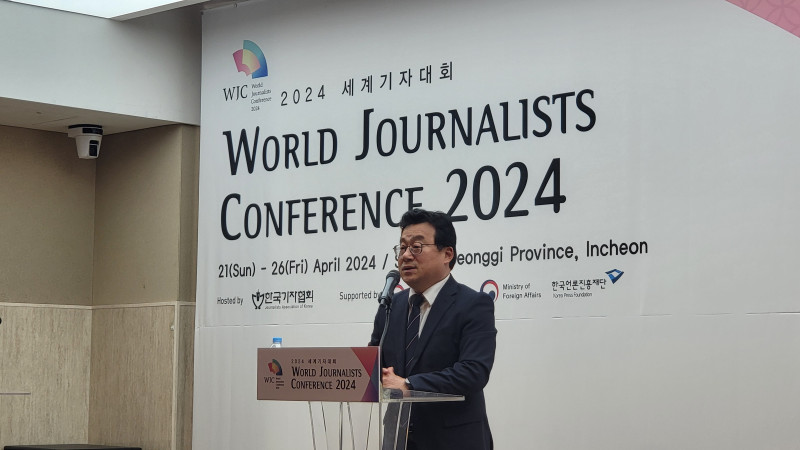

The conference was a meditation on peace and the future of media in the face of an ever changing world, writes Gunjeet Sra
Amidst growing concerns for peace and stability in a conflict-addled world, journalists from across the world gathered at the 12th World Journalist conference in Seoul, to discuss amid other things, the role of media in war journalism and world peace. Four reporters experienced in the field, from Korea, China, Pakistan and the United Kingdom talked about the challenges that journalists face while reporting in extremely violent and volatile environments. NOH Ji Won, International News Reporter, Hankyoreh Media was quite candid in discussing the unique problems that the Korean media faces when covering conflict zones, including the over protective nature of the government that bans its citizens, including reporters from entering “no fly zones”. Won said that, The Korean government’s coverage restrictions are not only excessive, but also highly problematic in that they violate freedom of speech and restrict independent journalism. The government’s rationale for the restrictions is “public safety,” but it’s more likely that they are trying to shy away from any accountability in the event of an unexpected incident. As a result, the government’s reasoning for restricting press freedom has come under fire.

Park Jong Hyun, President, Journalists Association of Korea
A major insight that emerged from this conversation was the lack of war reporting guidelines and safety protocols for journalists. In fact, a growing need for standard international guidelines was a consistent theme to emerge out of this conference, even while talking about subjects like the role of Artificial Intelligence and its ethical implications in journalism. Ray Minseong KIM, Head of Media Strategy & H-LAB, Korea Daily came forward to talk about how Hankook IIbo became the first domestic media in Korea to establish the Generative AI Utilisation Guidelines before integrating generative artificial intelligence (AI) into its journalistic processes. “This initiative is driven by the intention to provide a set of principles for the ethical use of generative AI, thereby fostering digital innovation that respects and upholds the values of journalism,” he said.
Another interesting subject that was covered in this conference was Web3 and how it can help formulate a new revenue plan for media organisations in an increasingly digitised world, Sonny KWON, CEO of PUBLISH, Inc. Korea talked about a new system in which digital media needed to adopt a blockchain system to increase readers’ engagement through a token reward system, which would thereby increase advertising revenues. He also touched upon creating a digitised press card which would become a decentralised identity proof system for journalists.
The conference also had presentations by CHUNG Byung Won, Deputy Minister for Political Affairs, Ministry of Foreign Affairs, Korea. KIL Ki Yon, President & CEO of Seoul Tourism. The conference was organised and hosted by The Journalist association of Korea. Since its commencement in 2013, the Journalists Association of Korea has been hosting the World Journalists Conference, now celebrating its 12th edition this year, by extending invitations to media professionals globally to convene in Korea. In his opening address, PARK Jong Hyun, President, Journalists Association of Korea, said that, “our unity is rooted in a shared commitment to journalism,transcending differences in nationality, gender, skin colour, and ideology. We endeavour to report the truth with analytical clarity and empathetic insight, all in the relentless pursuit of freedom and peace. I firmly believe that your extensive discussions will illuminate the path towards a bright future for journalism.”